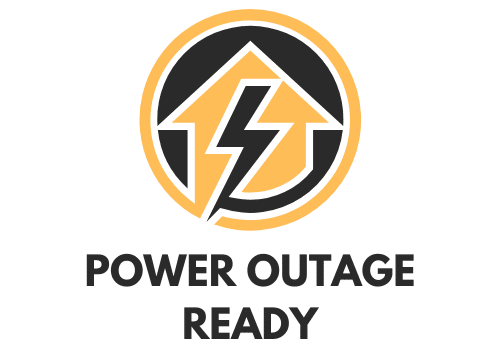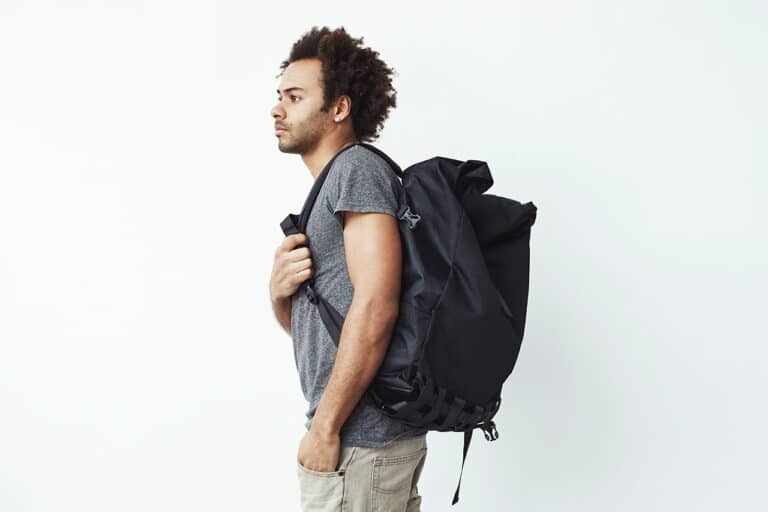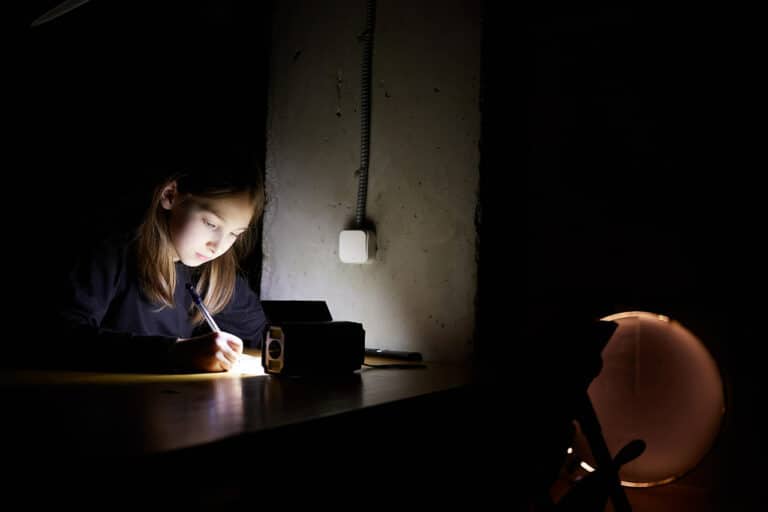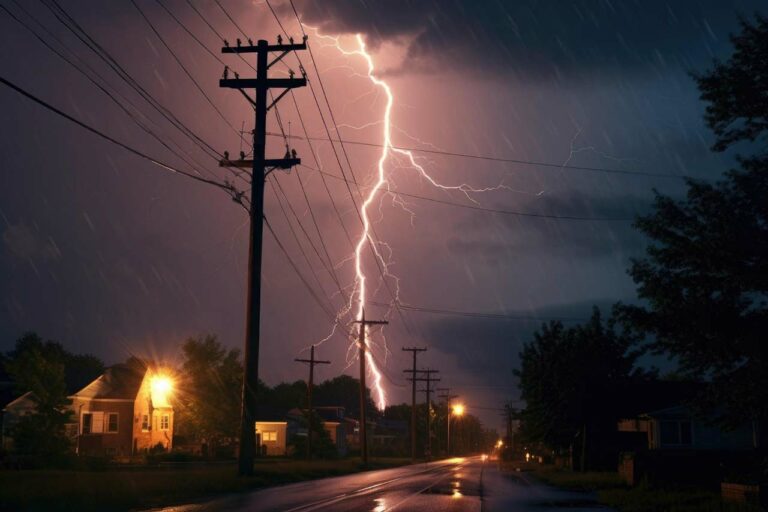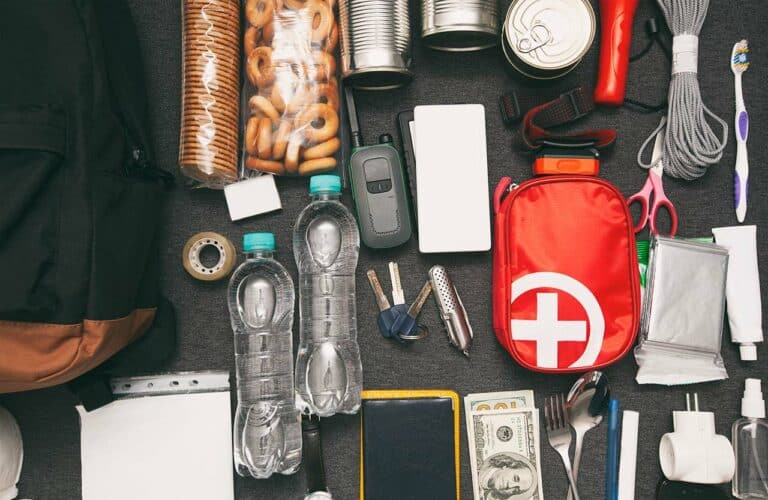General Power Outage Safety (What To Know)
Power outages can happen anytime and anywhere, leaving you without electricity for hours or even days. While no one likes it when the power is out, a little prepping goes a long way toward ensuring you and your family stay safe and comfortable during a power outage.
What To Do And What Not To Do
When a power outage first occurs, there are a few things you can do to keep things in your household running smoothly
First off, keep those freezer and refrigerator doors closed. In the immediate aftermath of a power cut, you don’t wanna waste the cold air inside.
Next, walk around your house and disconnect anything that’s plugged in, especially anything that’s not in a surge protector. (Though, it’s not a bad idea to unplug those too.) This will protect your electronics and appliances from any possible electrical surges.
If it’s dark when the power goes out, opt for battery-powered lanterns or candles (preferably battery-powered too) instead of using up your phone’s battery. While your phone might be the most readily available solution, you may need it for communication if an outage drags on. If you do need to use your phone to communicate, use text messages, not calls, to save on battery.
Ideally, you already have a power outage preparedness plan for when the power goes out that involves a decent stockpile of food and possibly an alternative energy source. You shouldn’t need either of those things in the immediate aftermath of a power outage (most people can go a few hours without electricity). Save them for when you do.
Managing Medical Needs
If you have anyone in your household who relies on electric-powered medical equipment, you need a generator, and you should turn that generator on immediately in the event of a power outage.
Refrigerated medications, like insulin, should be fine as long as the food is fine in your refrigerator. (Keep a thermometer in your fridge to monitor the temperature, and keep things above 40° F.) But you should have a backup plan in case an outage drags on to keep refrigerated medicines cold. This can be part of your plan to keep any perishable food items in your refrigerator cold, such as adding ice packs to your refrigerator or moving the items in your refrigerator into a cooler with ice.
Staying Informed During Power Outages
Once you’ve secured your food supply and home electronics as best as you can after a power outage, it’s time to plug in. Metaphorically speaking. Staying informed during a power outage is crucial for your safety and well-being. Emergencies like hurricanes, wildfires, and floods can lead to extended power outages, making it even more important to stay up-to-date with the latest information on how the weather is progressing, how long the power outage is likely to last, and whether any essential systems, like the municipal water supply, have been affected by the outage.
Here are some essential items and resources for staying informed during a power outage in your area:
Battery-Powered Weather Radio
Especially a NOAA (National Oceanic and Atmospheric Administration) weather radio. This is your best source for official information during a blackout caused by a weather event, like a hurricane or other major storm.
Social Media
It’s the age we live in, and platforms like Facebook can be valuable resources during power outages. This is especially true if you’re friends with many people in your immediate area.
Many utility companies and government organizations now use social media to share real-time updates on power restoration and emergency services. Following relevant accounts in your area can help you stay informed and prepared.
Emergency Alerts
Your local government may offer free emergency alerts via text message or email. Sign up to ensure you receive critical information about power outages, weather updates, and safety instructions.
Backup Power Sources
You don’t have to have a generator to have backup power on hand in case of a power outage. Power banks are an excellent way to keep your cell phone charged during a power outage, so you don’t lose access to important information.
Just make sure to keep the power bank charged, so it’s ready when you need it.
Remember, staying informed during power outages is essential to maintain your safety and make informed decisions about next steps.
Things Not To Do During a Power Outage
Power outages can strike unexpectedly, and while they might be inconvenient, it’s essential to know how to respond safely. Whether caused by storms, technical issues, or other unforeseen events, here’s a quick guide on what not to do during a blackout to ensure the safety of you and your loved ones.
- Don’t Drive Unnecessarily: Traffic lights may be out, making intersections hazardous. Plus, gas stations might not be operational without electricity.
- Avoid Using Candles: They pose a fire risk. Instead, use battery-powered lanterns or flashlights.
- Avoid Using Generators Indoors: Generators produce carbon monoxide. Always use them outside and away from windows and vents.
- Don’t Connect a Portable Generator Directly to Home Wiring: This can send power back to the grid and pose an electrocution risk to utility workers.
- Don’t Use Gas Ovens to Heat Your Home: This poses a fire and carbon monoxide risk.
- Stay Away from Downed Power Lines: Always assume they are live and dangerous. Report them to local authorities.
- Avoid Electrical Equipment: Don’t use any electrical equipment or appliances that were in use when the power went out until you’re sure there’s no electrical surge coming.
- Don’t Use Water Unnecessarily if on a Well Pump: Without power, your well pump won’t work, so conserve your remaining water.
- Avoid Making Unnecessary Phone Calls: Whether using a mobile phone or landline, it’s essential to keep lines free for emergency calls.
- Don’t Assume Everyone Knows: Report the power outage to your electricity provider – they might not know.
- Don’t Panic: Stay calm. Most power outages are resolved in a matter of hours.
Being proactive, staying informed, and using common sense will help you navigate safely through a power outage. Always prioritize safety and think twice before taking actions that might put you or your loved ones at risk.
